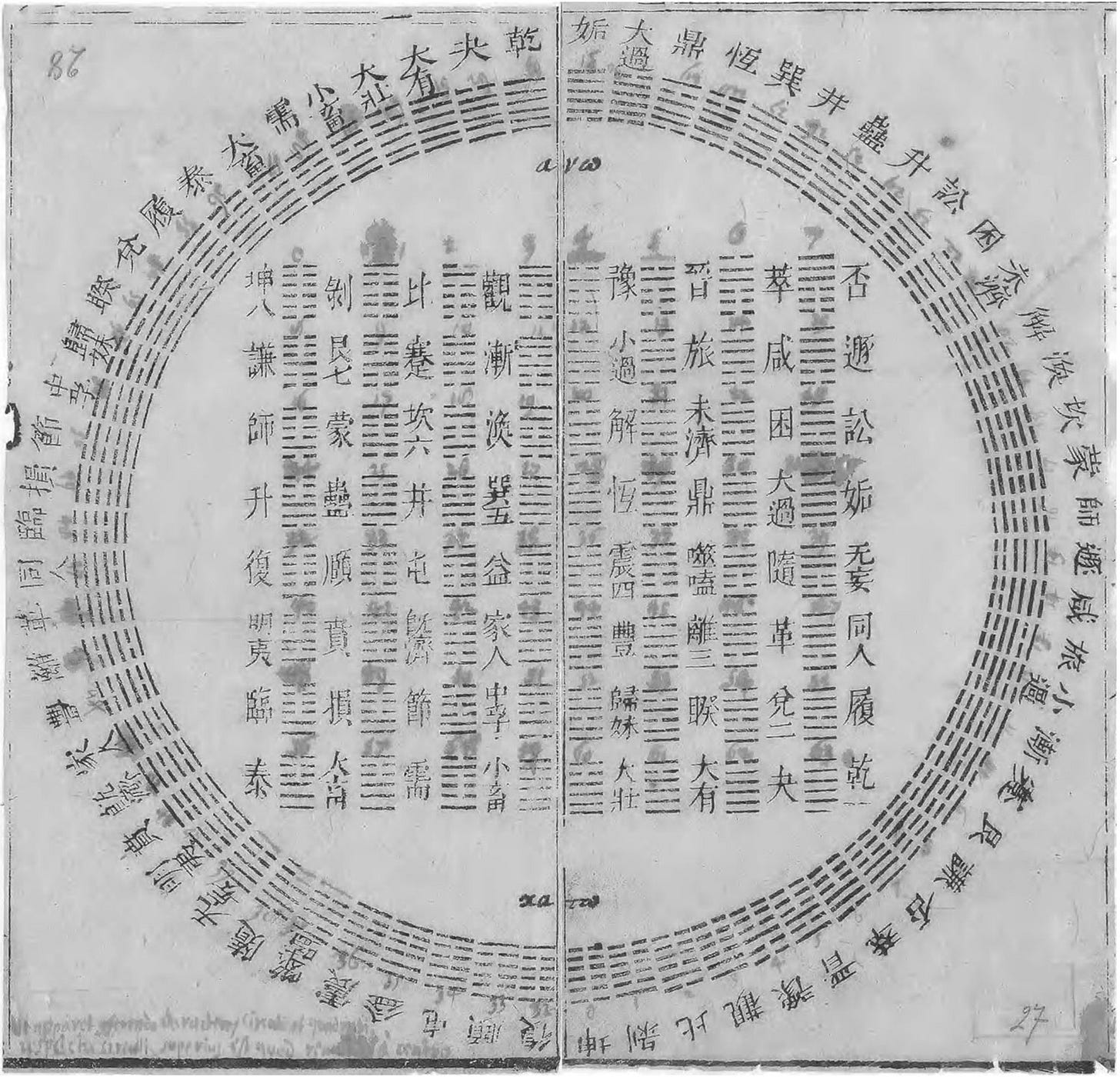John and I have been playing around with the I Ching recently. We learned about it through our discussion of The Man in the High Castle for the Thinking Man Book Club, and promptly picked ourselves up a copy of the Wilhelm Baynes translation.
The I Ching, or Book of Changes, is a book of divination. With a question in mind that you’d like the book to answer, you flip coins a bunch of times or do something with yarrow stalks (we didn’t try that method) to form a “hexagram,” or series of lines that corresponds to a passage in the book. Then you read the passage, and it answers your question.
Western people might not put much stock in this kind of thing. A flip of a coin is just a flip of a coin—it doesn’t have any correspondence with the thought you have in your head while you’re flipping the coin or the period of your life that you’re in while flipping the coin.
According to ancient Chinese thought, everything is connected. Instead of causality, they believed in chance. Synchronicity. According to their philosophy, the I Ching works because your question, the coin flip, and the state of your life while flipping the coin are all linked by virtue of existing in the same moment. Thus, their relationship is intrinsically meaningful.


